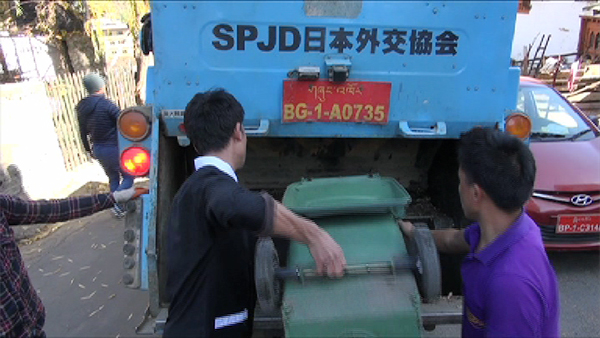 Following the concerns over the erratic timing of waste collections raised by the residents of Changjiji in Thimphu, Clean Bhutan will be training the interested residents in waste management. According to Clean Bhutan, people need not necessarily have to wait for the garbage truck to dump their waste if the waste is managed from the source.
Following the concerns over the erratic timing of waste collections raised by the residents of Changjiji in Thimphu, Clean Bhutan will be training the interested residents in waste management. According to Clean Bhutan, people need not necessarily have to wait for the garbage truck to dump their waste if the waste is managed from the source.
“Rather than waiting for trucks, we plan to make use of wastes in Changjiji only. Only 20 per cent of wastes should go to Memelakha landfill. We will provide training to the residents of Changjiji. For dry waste like milk powder packets and pet bottles, we will teach them how to make different products out of it. And, for wet wastes, we will do urban composting. For every three blocks, we are planning to make a composting shed. And to monitor it, we can have unemployed youth within the Changjiji colony itself,” said Nima Selden, the Project Coordinator for Clean Bhutan.
And according to a survey conducted by Clean Bhutan, if garbage trucks have to come on time, about 130 garbage trucks should be deployed in a day only in Thimphu.
The representative of the Changjiji housing colony welcomed the move to train the residents and introduce urban compositing.
“From now on, rather than waiting for the garbage truck, we can make use of the wastes. We can sell the bottles and engage our women in making baskets and other products out of waste. We are very grateful for that and we will help them in every possible way,” said Phurpa Wangdi, the Tshogpa of Changjiji.
If successful in Changjiji, Clean Bhutan plans to replicate it in other communities as well.
Changjiji colony is one of the largest clustered community in Thimphu with more than 750 households.
Pema Seldon Tshering









